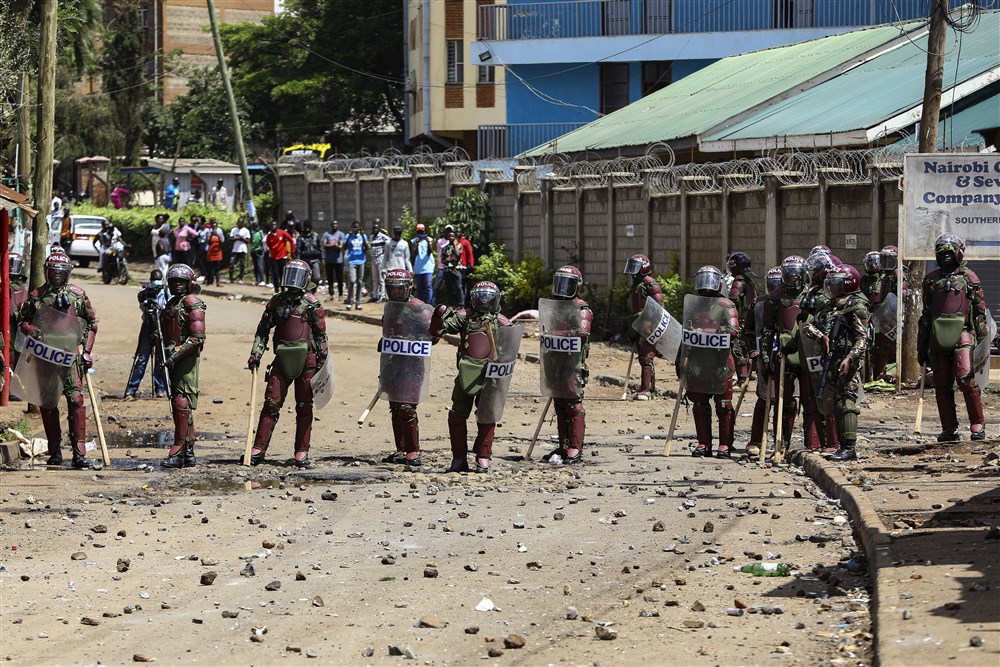The IPI global network strongly condemns the recent spate of violence against journalists in Kenya after more than 20 journalists were assaulted by security forces and opposition party supporters while covering anti-government protests in Nairobi and other parts of the country.
Civil society groups had also raised alarm over reports that the Kenyan government might shut down internet access and broadcast media ahead of expected continued protests on April 3, 2023 by a coalition of opposition parties led by former prime minister Raila Odinga. Odinga later indicated that he was suspending the protests and was ready for talks after President William Ruto addressed the nation.
The Kenya Media Sector Working Group (KMWSG) said in a statement that more than 20 journalists and media workers had been attacked or faced press freedom violations off- and online since the start of protests on March 20, including physical assault, broken equipment, harassment, and arbitrary detention. Journalists faced attack both by security forces who should be protecting them as well as by opposition sympathizers.
Among the victims were two journalists from Royal Media Services who were physically assaulted and two from Africa Uncensored, who were detained and later released by the police. Two journalists from Agence France Presse (AFP) and the Chinese broadcaster CGTN were physically assaulted by the protesters. One journalist working for Nation TV was forced by the police to delete her recordings of the protests, while another, Eric Insita, was injured and rushed to hospital for medical treatment. Journalists from Citizen TV were also attacked.
Odinga and his party have been leading anti-government protests against the rising cost of living and calling for President William Ruto’s resignation. Prior to these attacks on journalists, Odinga called for a boycott of the Star newspaper, which he had accused of biased coverage. He later called off the boycott but reportedly lodged a complaint with the Media Council of Kenya (MCK).
The Kenya Editors Guild condemned the assaults as a violation of the constitutional rights of media freedom and called on police to refrain from interfering with these rights. The MCK also condemned the incidents and demanded that those responsible be held to account.
Members of the media community denounced on March 31 plans by authorities to shut down the internet and broadcast media ahead of expected April 3 protests – plans that President Ruto denied in a speech to the nation on March 2.
“IPI strongly condemns the spate of attacks on journalists and media freedom in Kenya amid the ongoing protests”, IPI Deputy Director Scott Griffen said. “Authorities must ensure that journalists are able to exercise their rights to cover protests – which are clearly an event of great public interest – safely. Political leaders must ensure that their supporters respect the right of journalists to do their jobs.”
He added: “Security forces and individuals who are responsible for attacking journalists or interfering with their constitutional rights must be held to account. Ensuring such accountability is essential to upholding fundamental rights and the rule of law in Kenya. The IPI global network stands in solidarity with our Kenyan colleagues working bravely and tirelessly to inform the country about the ongoing protests.
“We are also greatly concerned over reports that the Kenyan government was considering a shutdown of the Internet and broadcast media. Such a step would gravely violate the right of the Kenyan public to information at a crucial time. Authorities must not interfere with the free flow of information online or on the airwaves.”
